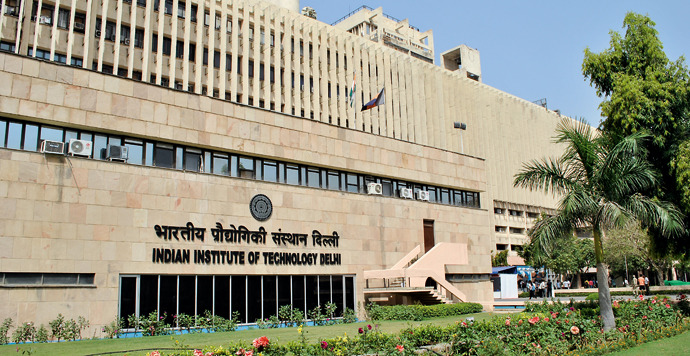In a development that comes as a major issue for India’s premier institutes the IITs, a Livemint report has revealed that more than 50 per cent of the IIT Professors are performing below par, which is affecting the research environment and brand image of the premier institutes. According to the report, the IITs have observed that a number of professors are not doing justice to their credibility and talent.
As per Livemint, IITs discussed a note at the council meeting on September 27, in which they said, “It has been observed that despite having very good credentials, large numbers of faculty do not put in enough effort on research and teaching. Over a period of time, this number has gone up to an extent (of) more than half.” The note added, “As a result, there is pressure on the administration to lower the criterion for evaluation. This becomes more fatal if heads of the institutes (directors) and other administrators like heads (of departments) and deans come from this category (of non performers).”
A senior professor of an older IIT, speaking anonymously told Livemint that the IITs are already facing a shortage of 15 to 35% professors. Now, if out if the already deficient staff as many as 50 per cent of the professors are not doing good work, then the institutes are barely surviving with just 30% credible teaching staff. This implies that the IITs- India’s premier institutes in the engineering and technology sectors might be performing at merely 30% of their actual potential when it comes to the teaching staff, something that greatly hampers their quality and brand image.
Now, the IITs seem to have realised how below par performance of professors is affecting its overall quality and already seems to be moving in the right direction. As per a Business Standard report, the IITs are going to start hiring faculty on 5-6 years contract in line with the practice of their global peers. Currently, the premier institutes hire permanent faculty after one year probation. Now, with the practice of contract hiring, the institutes will either retain the faculty and promote them as tenured faculty or annul their contracts based on a review at the end of the contractual period. Speaking about this development, S K Das, IIT Ropar Director said, “This is a step in the right direction. The MHRD (Ministry of Human Resource Development) and IITs want the institutes to be on a par with global peers who follow the tenure track system for hiring faculty. While the existing faculty will continue to function as permanent faculty under the older system, the new tenure tracking system will apply for fresh hires.”
According to the Business Standard report, the IIT Council has also decided upon reviewing the non-performing or underperforming teaching staff at the IITs. HRD Minister Ramesh Pokhriyal ‘Nishank’ also stressed upon the need of strict review and action in such cases.
A source said, “The MHRD and IITs believe that if the institutes have to compete at a world level, one will have to ensure optimum performance of faculty members and, so, if the review finds some of them under-performing, strict action could be taken.”
As per an IIT professor, speaking on the condition of anonymity has said that a sizeable portion of the faculty members at the premier institutes might have developed the attitude that it’s a “join and retire” job. This also gives rise to the belief that less effort in teaching and research won’t act as a hindrance in their careers. Speaking about the development of tenure track system in hiring faculty at the IITs, the professor is reported to have said, “Now, the governing bodies of the IITs will closely track the research output of its faculties and their publication in good journals. Unless you as a professor do that you will be pinpointed. Poor research and citation is negatively impacting the brand value and ranking of IITs that too at a time when India aims to make IITs to become world-class universities.” Therefore, with the IIT Council and the MHRD both emphasising upon the need of optimum performance of faculty members, it can be safely said that a course correction has taken place in order to tackle the belief that the job of an IIT Professor is a “join and retire” job like any other job in the government sector and that under-performance doesn’t affect career progress.
It must be noted that last month Times Higher Education (THE) released the list of World’s top institutes for 2020. What came as a surprise was the fact that not even a single Indian institute- not including the IITs could make it to the top 300. It is for the first time since 2012 that India’s university rankings have witnessed such a drastic fall. The World Rankings have given IIT Kanpur, one of the leading IITs, a research score of 24.5 and citation score of 35.2, which is way below par compared to China’s Peking University that boasts of research score of 90 and citation score of 73.2.
This is indicative of what has gone wrong with the IITs. There is a need to ensure better research culture at the IITs. In the light of such circumstances, the move towards hiring faculty on contract basis of 5-6 years and reviewing them at the end of the contract along with the step of reviewing non-performing and under-performing professors comes as a commendable move on the part of those involved in decision making at the highest level. It might just yield rich dividends for the premier institutes help them break into the top 300 at the World Rankings and competing with the leading global institutes.
